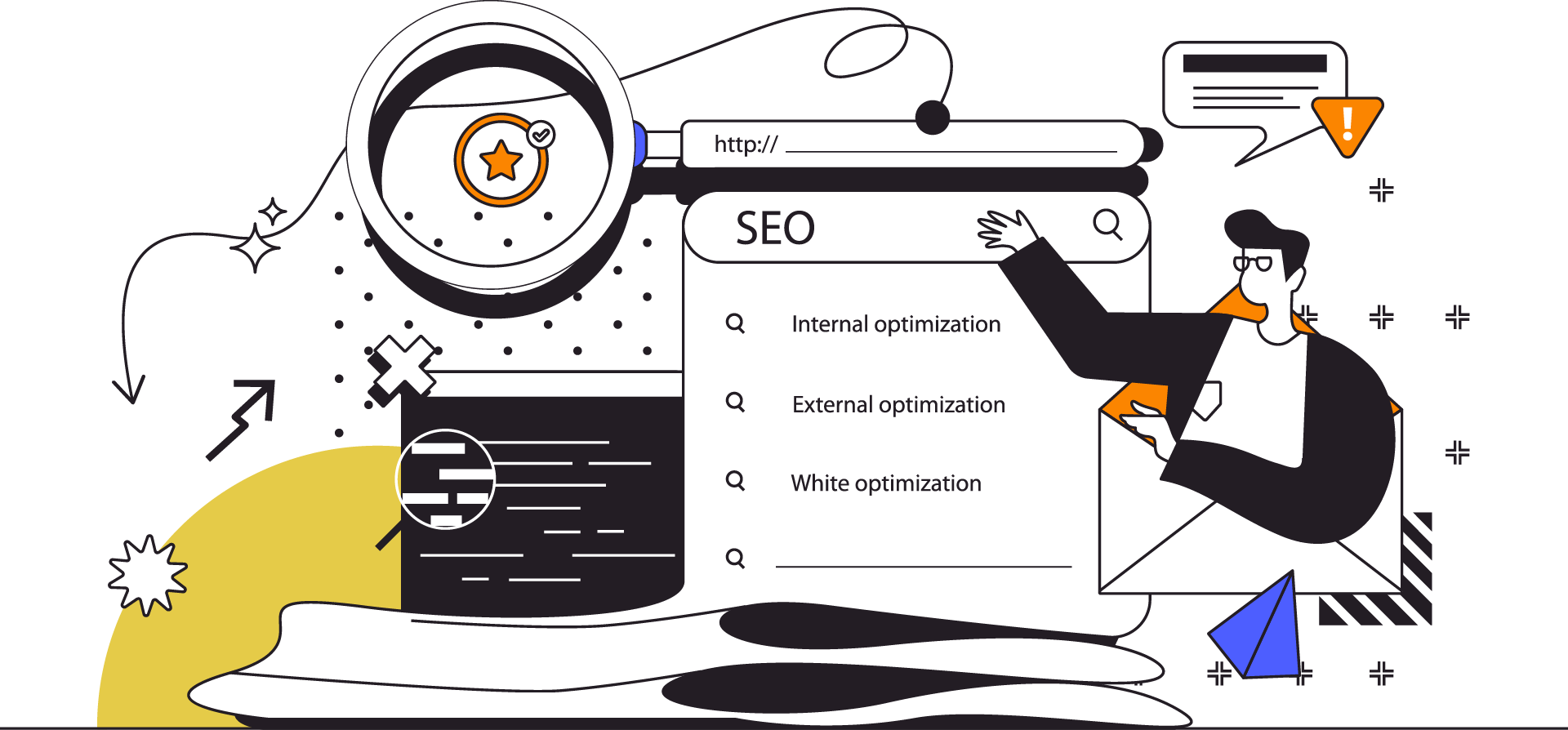Using Analogies to Explain SEO Work

SEO discussions can be as boring as watching paint dry. We know that our enthusiasm for algorithm updates, keyword variants, crawl rates, and Schema markup can make us feel like we’re the life of the party in the quietest library. But as SEO consultants, we need to be able to communicate the impact of our work to a variety of audiences, including non-technical clients and executives.
That’s where analogies come in. Analogies are a powerful tool for explaining complex concepts in a way that is easy to understand and remember. They can help us to bridge the gap between our technical and non-technical teams and to create a shared understanding of our goals.
I bring this up because you see, I’ve noticed something about us SEO folks – we’re big on analogies. It’s not because we secretly aspire to be stand-up comedians (well, maybe a little), but mostly because we know how quickly people’s eyes can turn into glazed donuts. And frankly, by using analogies effectively, you can communicate the complex world of SEO in a way that is easy to understand and relatable to anyone, regardless of their technical knowledge.
Popular Analogies on “SEO Strategies”
- SEO is like building a house. You need a strong foundation (technical SEO) and a well-designed structure (content and link building) in order to rank well. This analogy is used to emphasize the importance of all aspects of SEO, not just one or two.
- SEO is like gardening. You need to plant the right seeds (keywords), water them regularly (content), and weed out the competition (link building) in order to grow a successful website. This analogy is used to describe the long-term nature of SEO and the importance of ongoing maintenance.
- SEO is like a marathon, not a sprint. It takes time and effort to see results from SEO. This analogy is used to discourage businesses from expecting overnight success.
- SEO is like a puzzle. There are many different pieces that need to fit together in order to create a successful SEO campaign. This analogy is used to emphasize the complexity of SEO and the importance of careful planning and execution.
- SEO is like fishing. You need to use the right bait (keywords) and cast your line in the right spot (search results pages) in order to catch fish (visitors).
- SEO is like dating. You need to build relationships (links) and create a positive first impression (title tags and meta descriptions) in order to rank well for your target keywords.
When using analogies, it’s important to choose one that is relevant to your audience and that is easy to understand. You should also be prepared to explain the analogy in more detail if necessary.
Tips for using analogies effectively
- Choose an analogy that is relevant to your audience. The analogy should be something that your audience is familiar with and can relate to.
- Keep it simple. Don’t use an analogy that is too complex or that requires a lot of explanation.
- Explain the analogy. If necessary, explain the analogy to your audience in more detail.
- Tie the analogy back to your main point. Once you’ve explained the analogy, tie it back to your main point and explain how it relates to SEO.
Here’s one analogy that I like to use to explain the importance of crawl rates, server logs, and sitemaps:
Imagine that you’re standing in a long line at the airport customs. You’ve been waiting for what feels like hours, and you’re finally starting to see the scanning ahead. But then, you see another passenger start to dig through their bags to find their papers. They’re totally unprepared for the security process, and they’re holding themselves – and the rest of the queue – up even further.
Now, think of your website as that disorganized traveler, and SEO as the process of getting you through customs smoothly. Organizing your site architecture, creating XML sitemaps, and monitoring crawls is like efficiently packing your bags, getting your documents in advance, and putting your required information in a handy place. It’s about putting your essentials in the right places, ensuring everything is in order, so you can breeze through customs without a hitch.
Just like a customs agent is more likely to let a well-prepared traveler through quickly, Google is more likely to rank a website that is well-organized and easy for its crawlers to navigate. By paying attention to crawl rates, server logs, and sitemaps, you can help your website get through the SEO equivalent of airport customs quickly and easily.
We make SEO make sense.
Our team of SEO consultants has over 20 years of experience in the industry, and we’re passionate about helping our clients succeed. We’ll work with you to understand your business goals and develop a custom SEO strategy that will help you achieve them. We provide high-quality, actionable recommendations that make sense – no jargon needed.
The One About Sitemaps and Google
At Bird Dog SEO, we use this kind of analogy to help our clients understand the importance of SEO best practices. We know that SEO can be technical, but we believe that everyone should be able to understand the basics. By using analogies, we can make SEO more relatable and understandable for everyone.
Don’t get me wrong, I’m always game to chat about crawl rates, performance blockers, and Schemas. But let’s face it, these days, they don’t exactly set the party on fire, right?
Instead of drowning you in tech jargon, we like to use relatable examples to help you feel the impact of what we’re all about. For example, let’s talk about how all that stuff we’re doing about your crawl rates, digging through your server logs, and reviewing the sitemap settings can impact your keyword rankings:
Again, imagine that you’re that disorganized traveler at the airport customs again. You’re digging through your bags, building up anxiety as you realize you are holding up the line and making everyone else frustrated.
Now, imagine that Google is the customs agent. If your website is disorganized and difficult to crawl, making it more difficult for the Googlebot to get the information its looking for, then Google is going slow your indexing, impair your site’s visibility, and be slower to rank you for your target keywords.
But if your website is well-organized and easy to crawl, Google will be able to index your pages more quickly and rank them higher for your target keywords.
That’s where crawl rates, server logs, and sitemaps come in. By monitoring these metrics and making sure that your website is optimized for crawling, you can help Google index your pages more quickly and rank them higher for your target keywords.
And the best way to track these metrics and make sure that your website is optimized for crawling is to use analytics.
At Bird Dog SEO, we use analytics to track our clients’ crawl rates, server logs, and sitemaps. We also use analytics to track their keyword rankings and other important SEO metrics. Don’t have any analytics installed? Contact us – we can help with that too!
We then work with our clients to implement the necessary changes to improve their crawl rates, server logs, sitemaps, and keyword rankings. This data helps us to benchmark the improvements in areas where our focused efforts were.
